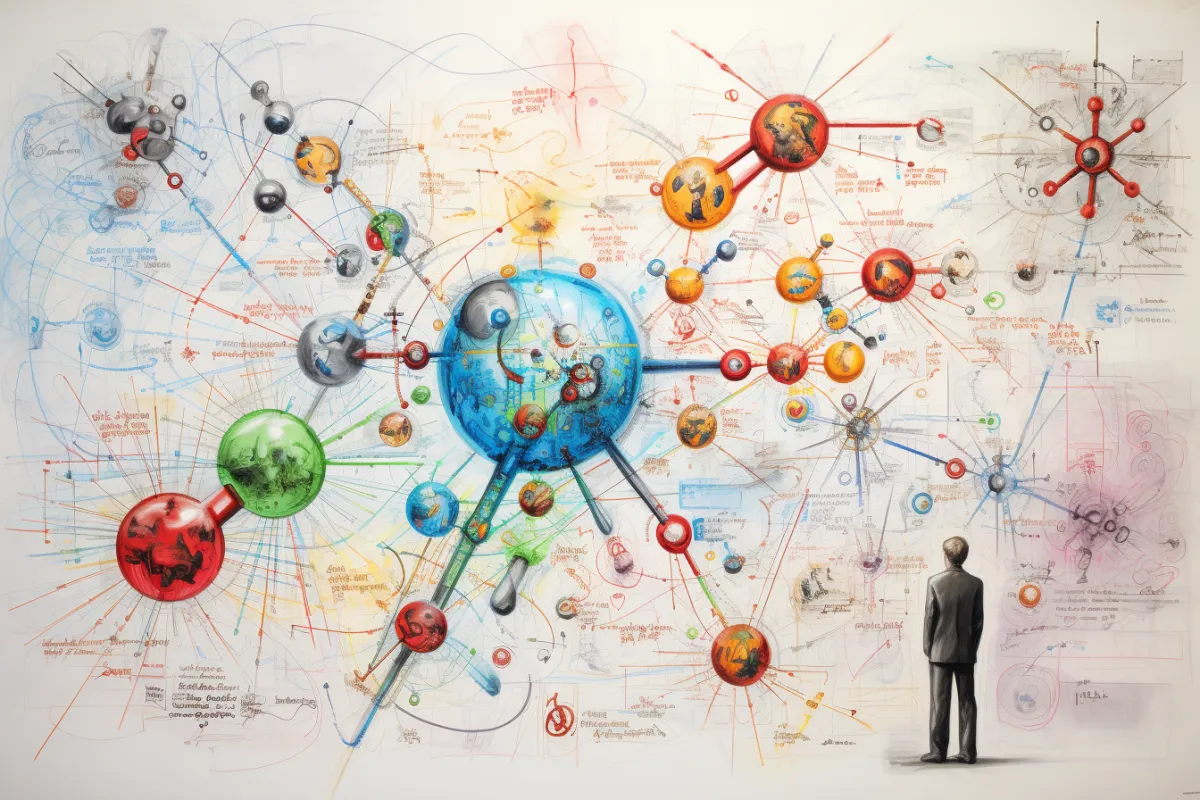Experience digging deep into God's Word.
We're here to help people understand and live by the Word of God.
Experience digging deep into God's Word.
We're here to help people understand and live by the Word of God.
Get a Daily Bible Verse
Delivered to your inbox and text message
Featured Bible Study Topics
Here's some of our student's favorite topics to study:

Bible Prophecy

The Teachings of Jesus

Heaven & The New Earth

Bible study for everyone.
Studying the Bible shouldn't be hard. Everyone - young, old, and everywhere in between - can learn the truths of the Bible. That's why we're here! Connect with us and get started today.
Personal study (one-to-one)
Correspondence study
Small group study
Online study
Here to help you understand the Bible
A variety of ways to connect with God's Word.
17
Bible coaches
You're not on your own here - connecting with one of our Bible coaches is one of the best ways to grow in your understanding of the Bible!
4+
ways to study
Personal one-to-one studies, correspondence, small group, online and more!
1,000's
of studies given
Our Bible coaches have conducted thousands of Bible studies on a variety of topics.
What people are saying about our studies...
Don't take our word for it - hear what people have been saying about doing Bible studies through Bible Learning Center!
Missy
After growing up in church, departing from it, and recently finding my way back... I discovered how to walk in a deeper relationship with the Lord. These Bible studies taught me how to love, obey, and rest in the promises of our God."
Kurt
"I started the Bible series because reading the Bible was not enough. I wanted to understand what it was teaching... Without these teachers here to guide me, I never would have known the truth. Thank you so much."
Our Latest Blog Posts
Articles to help you grow in faith

The Truth About Relativism
The Truth About Relativism
Two men were publicly debating morality. One argued that morals were like Cakewalk Jazz, Abstract Impressionism, and iambic pentameter; that is, they were relative, mere human constructions based on culture, psychology, genetics, and so forth. The other said that morals were based in God, or in some divine transcendence. Amid the exchange, the one who promoted moral absolutes challenged his opponent: “Kind sir, some cultures teach you to love your neighbors, others to eat them. Which do you prefer?”
Another story. In the 1970s, the French intelligentsia was challenging capital punishment in France. Those wanting the death penalty abolished asked one of the nation’s leading intellectuals, Michael Foucault, to write an editorial promoting their position. Foucault, perhaps the most extremist voice of moral relativism at that time, obliged, though (to the horror of the abolitionists) he wrote that France needed not only to abolish the death penalty but to tear down all prisons and set all prisoners free.
Why? Because, he argued, concepts like “criminality” and “crime” were relativistic cultural constructs, creations of a political elite who used these ideas to oppress people and to maintain their hold on power. In the end, France’s death was abolished; its prisons, of course, weren’t.
Santa Claus
These two stories reveal a crucial point about our times: However much we are told that we live in the post modern era, an era of moral relativism—we don’t, never have, never will, and never could. Relativism, particularly moral relativism, is the philosophical equivalent to Santa Claus: only a child really believes it.
No question, some people might think they’re moral relativists, and the more erudite among them wax eloquent about “cultural chauvinism,” “epistemological moral preference” and “values clarification”; that is, at least until something so-called “immoral” happens to her. Let the moral relativist be beaten and robbed by a stranger in her own home, or let her 15-year-old daughter wander into prostitution—and see how relative morals appear to her then.
One college professor wrote about the disturbing trend he saw among students. “Usually,” he wrote, “they deplore what the Nazis did, but their disapproval is expressed as a matter of taste or personal preference, not moral judgment. ‘Of course, I dislike the Nazis,’ one student told him, ‘but who is to say that they are morally wrong?’”
That student, of course, had the advantage of judging the Holocaust from a safe distance of 60 years removed. Had that young man watched his father get shot in the head, his mother gang raped and strangled, his siblings dispatched to the gas chamber, and then had he been forced into slave labor, where he was abused and starved for years—he would have certainly been less neutral about the judging the morality of the Holocaust, would he not?
The Expectation of Strong Certainties
Though relativism is nothing new (Plato railed against it the fourth century B.C.), many have argued that Einstein’s Theory of Relativity proved scientifically that, well, everything—even morals, is relative. Einstein’s theory, in fact, did nothing of the sort. On the contrary, though it proved that time itself is not absolute but can vary from place to place depending upon special circumstances (hence the name “Special Relativity”)—the theory is grounded in an unchangeable absolute: the invariance of the speed of light. Einstein even considered naming his idea “The Invariance Theory” (how much misconception might have been avoided had he done so). Special Relativity has about as much to do with cultural or moral relativism as France does with French fries.
Relativism might sound like a broad, tolerant and liberal way to live; the only problem is no one can or would want to live that way. Our lives are built upon the expectation of strong certainties. Though one radical feminist berated Newton’s famous work on the law of gravity, the Principia, calling it a “rape manual,” if that same feminist were pushed off a cliff, accelerating (according to Newton’s “rape manual”) at 32 feet per second per second, would she prefer having her broken bones fixed by a modern medical doctor, or a voodoo faith healer (after all, who says one form of medicine is better than another)? And what relativist has ever driven a car, or flown in a plane, propelled by anything other than the laws and principles of mechanics, combustion engineering and aerodynamics, laws that are certain, firm, and certainly not relative?
The Truth Behind Lies
Relativism is not just impractical and impossible to live out, it’s intellectually absurd as well. Well, maybe it’s true for you that the earth is flat, but it’s not for me. Or, Maybe it’s your truth that torturing babies is wrong but it’s not mine. Or, Maybe it’s your truth that the Holocaust happened, but it’s my truth that it didn’t. Or, Maybe 2 +2 =4 is true for you, but not for me.
Certain things are, of course, relative, perspectival, cultural. Is there, after all, true music, or the correct national anthem, or the only right way to prepare fettuccini? On the other hand, a x b = b x a isn’t true at one latitude and false at another; nor is it culturally conditioned or based on personal preferences? It’s a universal truth that transcends human predilections, cultures, and prejudices.
In fact, the mere existence of lies proves that truth must exist. How so? It’s because the very word “lie” itself implies a truth behind it. If the statement, “The sun is made of cardboard and held together by Elmer’s Glue” is a lie, it can be a lie only because the sun isn’t made of cardboard and held together by Elmer’s Glue. It must be made of something else, and held together by something else, whatever they are, that is the truth about the sun. Thus, lies can be lies only because they hide the truth, which must be lurking somewhere behind them; otherwise, it’s not a lie to begin with. And who denies that lies exist?
A Logical Conundrum
Finally, relativism has another weakness: it’s self-refuting. The concept all but negates itself. If everything is relative, if nothing is certain, then why should anyone believe that the statement “everything is relative, and nothing is certain” as true? Would not those ideas be just as relative, uncertain, and contingent as everything else supposedly is? Based on its own argument, “relativism” itself must not be truth, but only relative, and so why should it be taken seriously? A true relativist (of which there are none, at least practically speaking) couldn’t really believe that relativism is true. To do so would, indeed, negate the very relativism she professes.
The Truth and Us
If relativism, among its other flaws, is wrong (which it obviously is), then one must draw the conclusion that truth exists. It has to. Which is precisely why, for millennia, many people, realizing the absurdity of relativism, have sought to know truth.
“Truth,” someone said, “is what exists even after we stop believing it.” Or perhaps, more accurately, we should say, “Truth is what exists even before we know it’s true.” Thus, we conclude: truth exists, and we exist. Thus, we exist in relationship to truth. Thus, the remaining questions, such as: What is that relationship, and can we know it?
Part two of three. Part three: "The Challenge of Truth"

© 2024 Bible Learning Center. All Rights Reserved.


